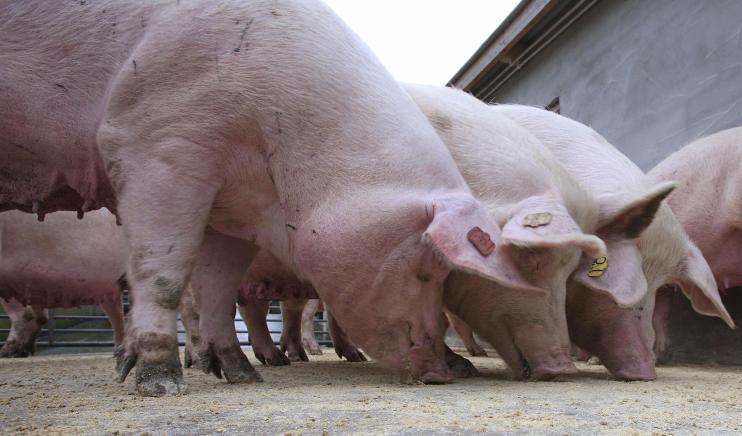Farmers sound alarm as more than 40,000 pigs are culled and meat thrown away due to Brexit and pandemic

An estimated 200,000 pigs are backed up on farms because of a lack of skilled butchers to process them, while 40,000 animals have already been culled and their meat thrown away, farmers said this morning.
Farming needs “certainty, commitment and consistency” from the Government to avoid more crises like the one engulfing the pig industry, the agricultural leaders are warning.
National Farmers’ Union president Minette Batters will tell her organisation’s conference in Birmingham on Tuesday that the crisis in pig farming is a “disgrace” and a “disaster” for the industry which could and should have been avoided.
Ms Batters will tell delegates that the Government needs to urgently implement a clear plan for British farming and food production – or face sleepwalking into more and more crises.
She will reveal a report calling for action including commitment and investment from Government and retailers to sell more British food at home and abroad, properly funded sustainable farming payments, and a “dial-up, dial-down” immigration policy.
In her speech, Ms Batters will say: “British farming has a lot to be positive about, to be proud of, and to believe in; our high standards of food production, our net zero ambitions, our education programme which reached a third of a million children last year.
“But Government does need to understand that we need certainty, commitment and consistency.”
“We need a plan that pre-empts crises rather than repeatedly runs into them. The current situation in the pig sector should have, and could have, been avoided.”
National Farmers’ Union president Minette Batters
“There are currently 200,000 pigs on contract backed up on farm. 40,000 healthy pigs have been culled and simply thrown away.
“This truly is an utter disgrace and a disaster for the pig industry.”
Ms Batters will blame the Government’s “poorly designed change to immigration policy”, and a lack of understanding of how food production works, for the crisis.
And she will urge: “This country needs a strategy and a clear vision for what we expect from British farming.”
She will criticise “contradictory Government policies” that are raising the bar for environmental standards at home but pursuing trade deals which support lower standards overseas, as well as making it difficult to find workers to harvest or process domestic food, and failing to prioritise resources to open up new export markets.
She will warn that “polarised debates” around the environment and agriculture are not allowing the UK to focus on the challenges around food supply in the future.
“There needs to be a plan, a plan which enables Britain to keep on farming and to continue to be world leaders in high quality, safe and sustainable food,” Ms Batters will urge.
The NFU conference is also set to hear from Environment Secretary George Eustice.